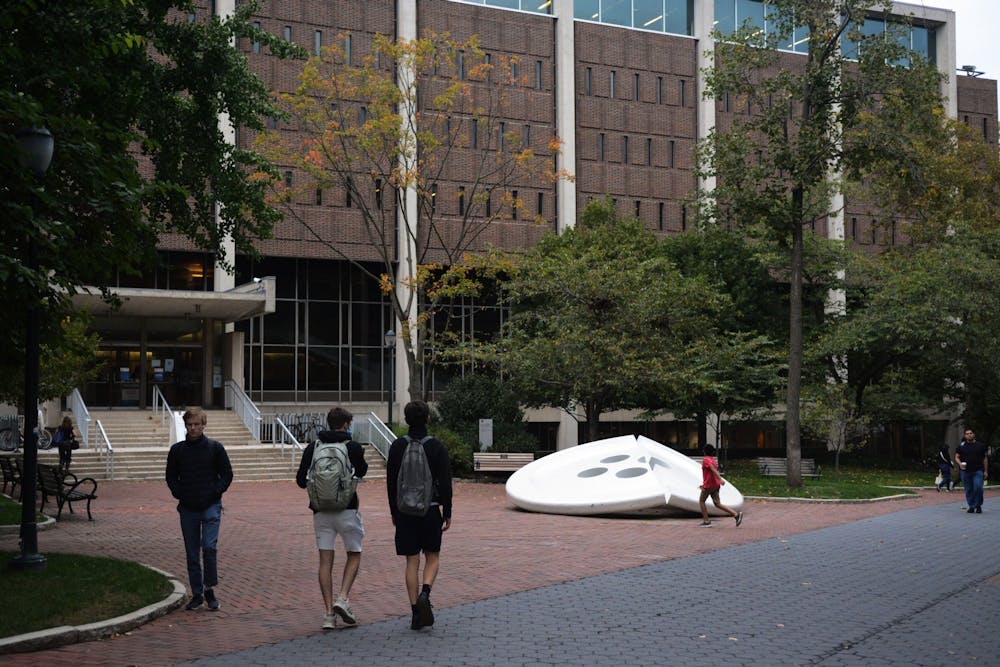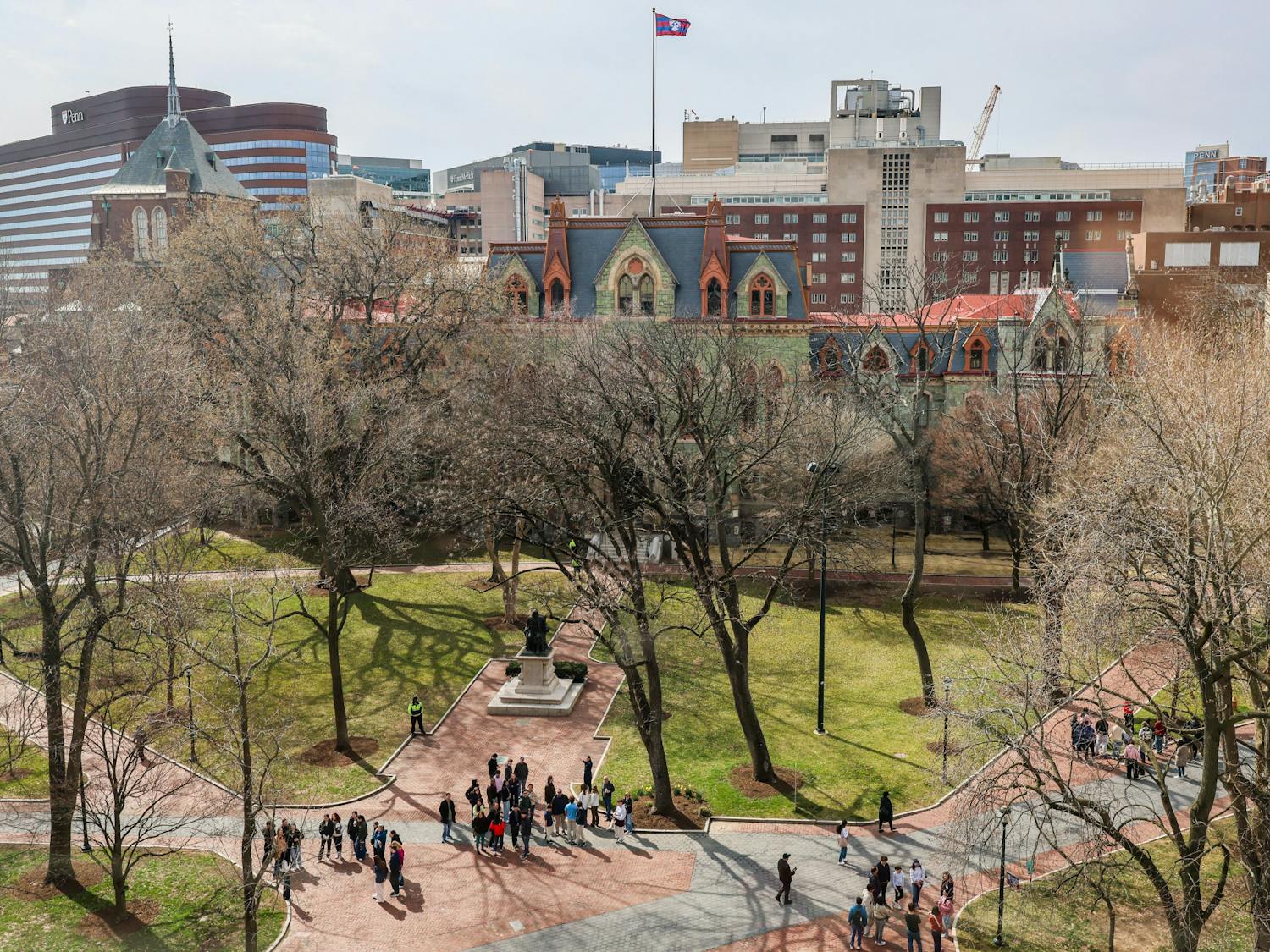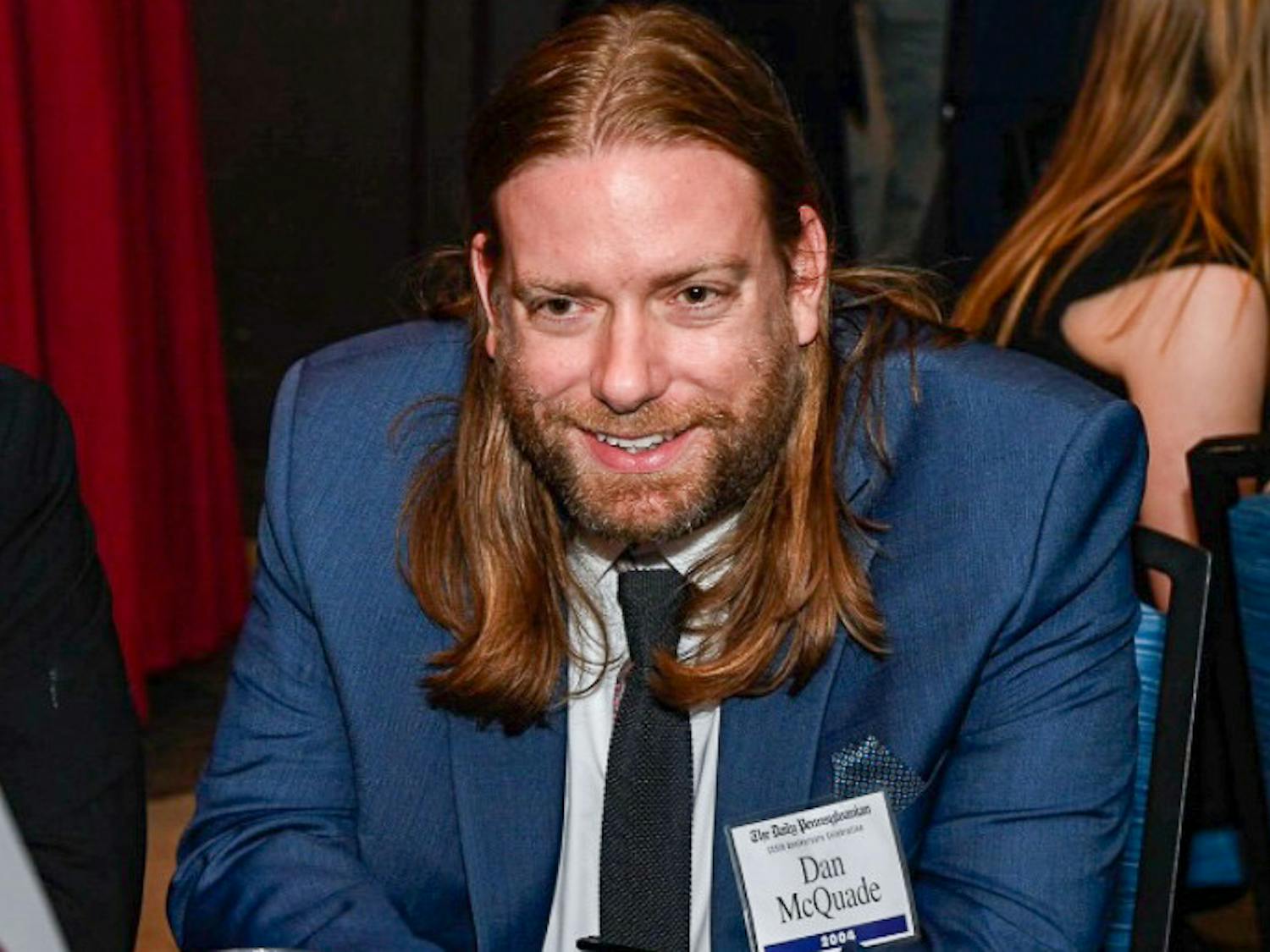Penn Libraries hosted its 15th Annual Lawrence J. Schoenberg Symposium on Manuscript Studies in the Digital Age from Nov. 10 to Nov. 12.
The event, which was held at Parkway Central Library and Van Pelt-Dietrich Library, centered around a theme of “Translating Science.” It began with a speech from keynote speaker Elly Truitt, who is an associate professor in Penn’s History and Sociology of Science Department.
“[Truitt] came to Penn in 2020. Her presence here as one of the first medievalists in this department inspired this symposium,” Lynn Ransom, project manager of the Schoenberg Symposium and co-founder of the Schoenberg Institute for Manuscript Studies, said.
In her speech, Truitt told the story of an astrolabe: an ancient astronomical and navigational tool once considered a handheld model of the universe. She spoke about the evolution of scientific translation through the lens of "A Treatise on the Astrolabe", an instruction manual written by Geoffrey Chaucer, a 14th-century English poet and writer who translated Arabic information on astrolabes into English.
The Lawrence J. Schoenberg Collection — a group of about 300 manuscripts and documents from 1900 B.C. to the 20th century — was donated to Penn Libraries by Barbara and Lawrence Schoenberg in 2011. The manuscripts focus on medieval and Renaissance material from Europe, Africa, and Asia.
Each year, scholars from around the world are asked to speak at the symposium on how knowledge moves across cultural and geographical boundaries. Each of the speakers has studied pre-modern texts produced before the printing age. Although the printing age emerged in different years for different countries, most texts generally come from before the 17th or 18th century.
“There are many different ways to talk about manuscripts,” Ransom said. “We thought that we would just sort of take it topically, so every year, it's a completely different topic.”
Past topics have included legal studies, music, religion, the study of data, and the study of lost or broken manuscript collections that were contextualized by the pandemic.
RELATED:
Perry World House hosts panel on Global Research & Internship Program during annual career week
Perry World House event to examine impact of nuclear technology on diplomacy and defense
Although the overarching topic of this year’s symposium was scientific translation, other subtopics included phlebotomy, pharmacology, early recipes, and mechanics.
Ransom hoped that the events allowed attendees to see that science from the past still has a lot to teach people today.
“Science was very dynamic," Ransom said. "Understanding what happened in the past informs how we understand science and scientific traditions now."









